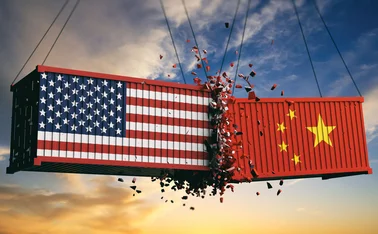
Own your crisis – Removing the bottleneck to reform
Shaukat Aziz, IFF co‑chairman, and former prime minister and finance minister of Pakistan, recommends that developing countries deal with financial assistance from the International Monetary Fund rationally, adhere to their own agendas and take their destinies into their own hands


The greatest challenge I faced when taking on the position of Pakistan’s minister of finance in 1999 – when the country had negative reserves – was dealing with the International Monetary Fund (IMF).
The IMF might employ many bright people, but it insists on a cookie-cutter approach, and they can’t deviate from the line at all, which was very frustrating for somebody who grew up in the private sector. Very soon after our first dispute, the IMF left financing off the table. And not once, in any review – apart from its standardised approach – did the IMF discuss growth and reform. I advised the organisation: “Be careful of the deposit deficit. If we don’t have growth, the whole thing will come falling down.” We continued because we needed the money, and agreed to introduce the IMF’s programme.
In parallel – and not directed by the IMF – we launched our own structural reform agenda to drive job creation and remove the bottleneck that exists in any developing country and impedes economic growth. The IMF staff were very bright, but many of them were naive, because they were victims of their own structure and cookie-cutter approach for every country.
What were Pakistan’s problems then – and what did we want to do to solve them? Pakistan is a country of 200 million people with a low literacy rate. How do you explain to them what the government is trying to do? We vowed to do three things to fix this crisis. The three key words I gave to the public were ‘liberalise, deregulate and privatise’. Most disappointing about the IMF was that the idea of ‘reform’ – structural reform – was never voiced in any discussion. I was trying to make the pie bigger so we could distribute more to the people and create economic growth, which would then take care of a lot of other problems. Unfortunately, the IMF was not interested in this.

Enlarging the pie
We started liberalising, deregulating and privatising anyway. We unleashed forces on the market and economy that had never existed before. Take, for example, the telephone company – the private sector came in to manage it and immediately introduced new technology. The banking system was entirely nationalised – within a year it had been privatised. As the procedure was open and transparent, there was not a single complaint that it had been given away to somebody’s relatives, or anything similar. Encouraged by this, we started on other sectors. Privatisation was the biggest driver of growth in our recovery, proving that you should think outside the box and move away from a cookie-cutter approach. If developing countries were members of the Organisation for Economic Co-operation and Development (OECD), with those standards they would have limited flexibility. But developing nations have more options.
By the time Pakistan had completed its privatisation programme, GDP had doubled in five to six years. The pie had become larger, and the economic activity engine had created an incredible number of jobs. Spending was growing because income per capita was increasing. A mere few hundred million dollars per year in foreign investment had become billions; and the biggest attraction for foreign investors was the privatisation programme.
My advice, especially to developing countries, is that your own strategy to get out of economic distress will be the best. Do not turn to the IMF as a drowning man clutches at a straw. Consult them, talk to them, but keep your own agenda. We have seen that structural reform agendas can only be implemented and organised at a national level. Structural reform improvement is not only the preserve of emerging countries – developed nations need it even more because they are stuck in the past. Untangle where you are and try to think with fresh oxygen coursing through your system, oxygen provided by reforms to that system. When the OECD claims it does not need reform and tries to teach you what to do, this is the wrong approach. Every country needs reform. The day you think you don’t need reform, you are in trouble.
People are objective in the long run, especially when the results start coming in. They can see that jobs have been created and that the person who once rode a bicycle now drives a motorcycle. The process took nearly five years. I witnessed the expansion twice in five years at Pakistan’s Honda motorcycle plant – it doubled capacity and then doubled again. Suzuki came into the market as well. The inefficient state-owned Pakistan Telecommunication Corporation was sold in open auction. It was bought by a major company from the United Arab Emirates – now there are four or five operators.
Competition is the best way to reform and promote efficiency because it forces businesses to continue honing their ‘edge’. Today, mobile networks cover the entire country, even in small villages. Life changes and so do economic activities. Pakistan’s success was built on having its own strategy and convincing the IMF that, left alone, Pakistan would do the right thing, even if there were a political price. Without a strategy, the worst thing a country can do when intervention comes is to let others teach it what to do and simply apply that. If you apply it, you pay the price for it. But if you take charge and have an idea – right or wrong – you can argue with them about it. You might make mistakes, but you also have a road map that will take the country out of its situation.
A strategy for the future
Pakistan’s strategy is to liberalise, privatise, deregulate, open the market, open capital flow and open up external accounts to bring in money. Pakistan is a developing country with 200 million citizens – which is a lot of people. We have the same challenges as other countries, except we approach them differently. The failure of the Bretton Woods Institutions was partly because they have a standardised approach with a one-sided view of every problem. Don’t implement reform out of fear but out of ownership, and you will see the outcome.
Finally, take your destiny into your own hands – don’t go to any institutions with a blank piece of paper and say: “I’m under your umbrella, please tell me what to do.” Have your own views, argue and debate, all the while respecting the other side because they can give you a lot of good ideas. But, by all means, take ownership.
Only users who have a paid subscription or are part of a corporate subscription are able to print or copy content.
To access these options, along with all other subscription benefits, please contact info@centralbanking.com or view our subscription options here: http://subscriptions.centralbanking.com/subscribe
You are currently unable to print this content. Please contact info@centralbanking.com to find out more.
You are currently unable to copy this content. Please contact info@centralbanking.com to find out more.
Copyright Infopro Digital Limited. All rights reserved.
As outlined in our terms and conditions, https://www.infopro-digital.com/terms-and-conditions/subscriptions/ (point 2.4), printing is limited to a single copy.
If you would like to purchase additional rights please email info@centralbanking.com
Copyright Infopro Digital Limited. All rights reserved.
You may share this content using our article tools. As outlined in our terms and conditions, https://www.infopro-digital.com/terms-and-conditions/subscriptions/ (clause 2.4), an Authorised User may only make one copy of the materials for their own personal use. You must also comply with the restrictions in clause 2.5.
If you would like to purchase additional rights please email info@centralbanking.com







